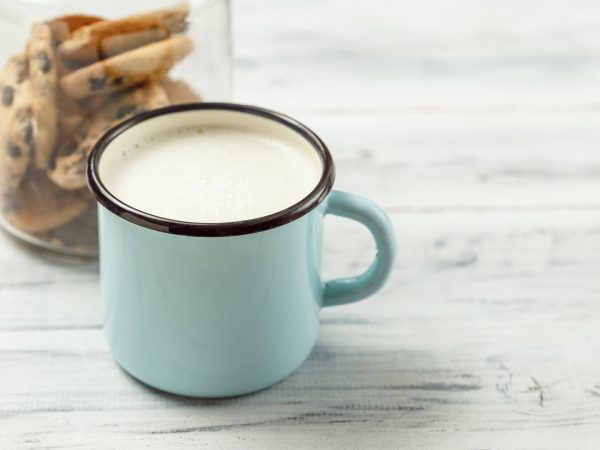Is Drinking Milk A Breast Cancer Risk?
I understand a new study shows that drinking milk increases the risk of breast cancer. If this is true, how much milk is too much?
Andrew Weil, M.D. | April 14, 2020

A study from California’s Loma Linda University found that habitual milk consumption raises women’s risk of breast cancer. It showed that drinking as little as one-quarter to one-third of a cup of milk daily was linked to a 30 percent increased risk. Consuming up to one cup daily raised the risk to 50 percent and drinking two to three cups per day raised it as high as 70 to 80 percent.
The researchers evaluated the diets of 52,795 North American women. When the study began, none of the women had breast cancer. They all provided information about their diets and health by answering food frequency questionnaires and also were asked about any family history of breast cancer, their physical activity, alcohol consumption, use of medications (including hormones), and history of breast cancer screenings, as well as their reproductive and gynecological history.
The investigators followed the women for 7.9 years, by which time 1,057 had developed breast cancer. The study results showed that compared to participants with low or no consumption of milk, a higher intake was associated with greater risk. Study leader Gary E. Fraser, Ph.D., said his team found minimal variation in risk when comparing intake of full-fat versus reduced- or nonfat milks. No effect on risk was linked with consumption of cheese or yogurt. Dr. Fraser also reported that the data predicted a marked reduction in breast cancer risk associated with substituting soymilk for dairy milk.
The researchers wrote that a “hazardous effect of dairy” is consistent with recent findings from another study showing that breast cancer rates are lower among vegans than among lacto-ovo-vegetarians.
For the record the American Cancer Society (ACS) notes on its website that some early studies raised concerns about whether drinking milk from cows treated with hormones can raise the risk of breast cancer or other types of cancer although later studies failed to find a clear link. The ACS concluded that it’s unknown if drinking milk produced with or without hormone treatment is of concern regarding cancer risk or other health effects.
If you do drink milk, I urge you to buy only organic brands without the residues of antibiotics and hormones found in conventional brands. In my opinion, hormone residues may be responsible for increased risks of hormonally driven cancers.
Andrew Weil, M.D.
Source:
Gary E Fraser et al, “Dairy, soy, and risk of breast cancer: those confounded milks.” International Journal of Epidemiology, February 25, 2020; DOI: 10.1093/ije/dyaa007









